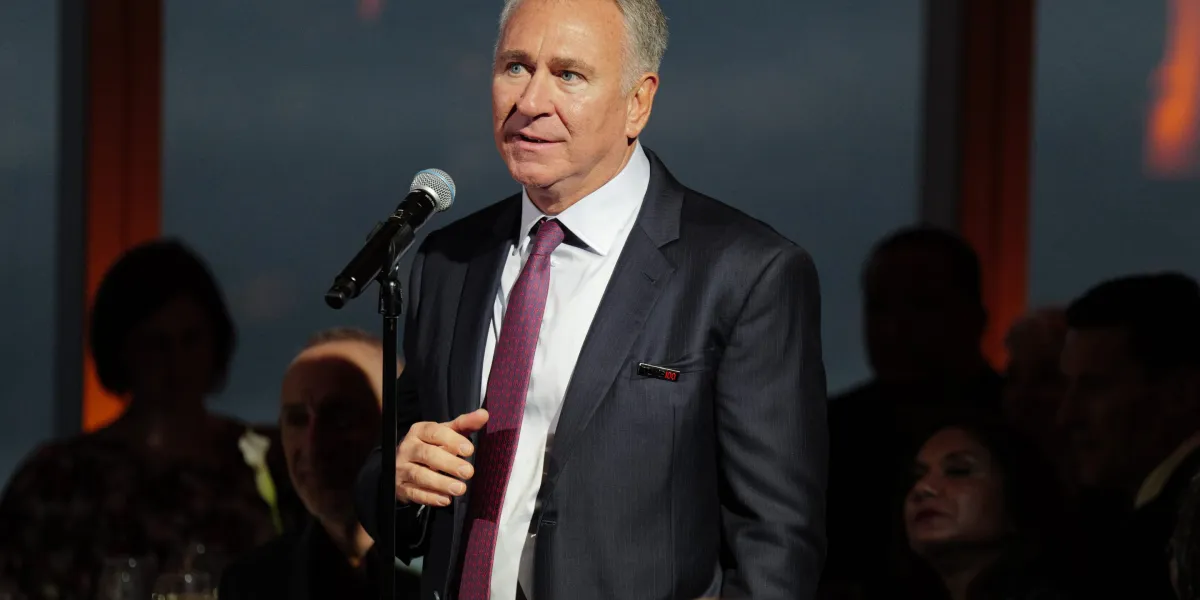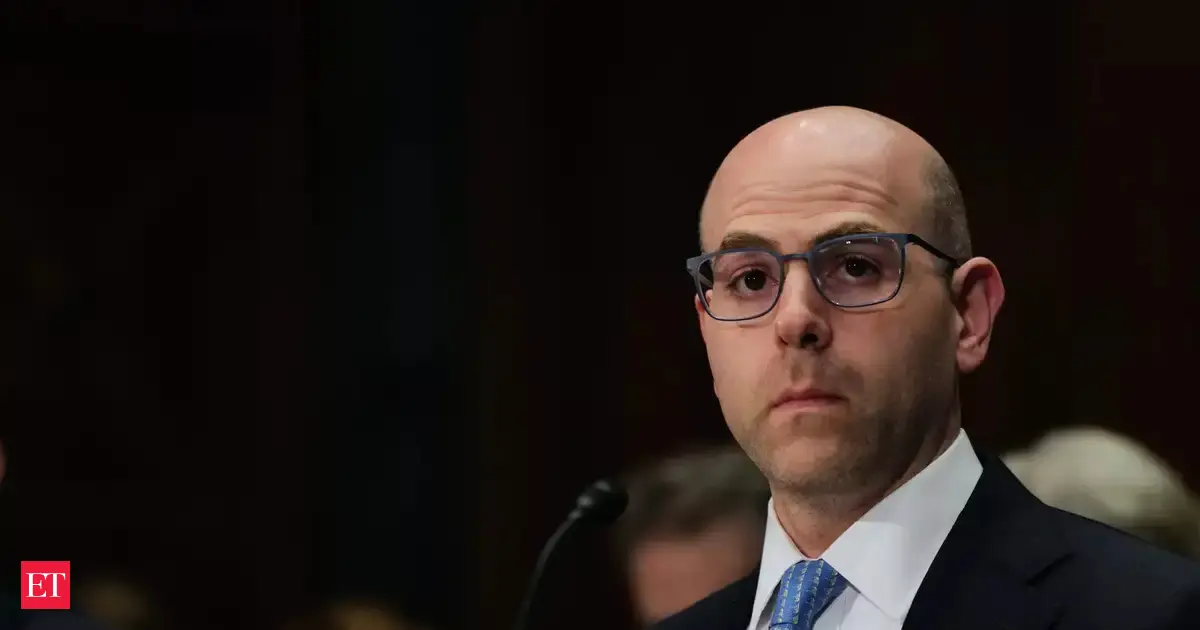
This has included warning the White House against intervening too closely with central bank policy, and raising questions about some aspects of tariff policy. And this is where the hedge fund billionaire has raised further questions this week, making it clear he doesn’t believe preferential treatment should be showed to America’s biggest businesses.
Trump has made it clear that backing U.S. business will be the central theme of his second presidency, and has surrounded himself with some of the most notable names in the economy. This has included bringing Tesla CEO Elon Musk into the White House to lead the Department of Government Efficiency (DOGE), and having executives from Amazon’s Jeff Bezos, to Meta’s Mark Zuckerberg and Alphabet’s Sundar Pichai in the front row of his swearing in ceremony.
The revolving door of Magnificent 7 CEOs coming through the White House is perhaps to be expected with a businessman in the Oval Office, but Griffin warned potential preferential treatment to certain companies shouldn’t be encouraged.
“I spoke about my concerns with the crony capitalism if we went down the path of tariffs. The line outside the White House of every business arguing why they should be exempt from paying tariffs on what they import into their products is nauseating,” Griffin told CNBC in an interview released today.
Griffin, worth $50.5 billion according to Forbes, added companies like Apple shouldn’t get exemptions from tariffs despite how many Americans buy them. “100% not,” he said. “We’re just going to favor big and connected businesses in America? Is that our country, that we’re going to favor the big and the connected? That’s not the American story.”
The White House has indeed announced some Apple products will be exempt from certain tariffs, a move which sent its stock price up after investors worried how exposed the Mag7 company would be to tariff policy. Chipmaker Nvidia has also scored some wins, having agreed with the White House it will share a portion of its revenues in return for being able to sell advanced chips to China.
Griffin added he had “nothing against Tim Cook,” explaining: “Tim Cook’s doing what he as CEO should do vis-a-vis his shareholders, but when the state becomes involved in picking winners and losers, there’s only one way this game ends. All of us lose.”
There’s also the question of how future administrations might view businesses which became so deeply entrenched with the Trump team. Would a future Democrat president, for example, seek to right-size a business which they felt were given preferential treatment in the past?
“Now you’re going to end up in, if you’re out of favor with the next administration what will they ask you to pay to do business abroad?” Griffin asked. “With each administration are you going to find corporate America having to cut new deals with a new administration about their terms and business dealings abroad?”
The question of fairness
Trump is scoring wins for his deals with the world’s largest companies. Apple increased its U.S. investment pledge in August to $600 billion, confirming plans to hire some 20,000 people to work in R&D, silicon engineering, software development, and AI and machine learning over the next four years.
Meanwhile SoftBank, OpenAI, Oracle, and MGX are initial equity partners in the Stargate project, a company which will invest $500 billion over the next four years building new AI infrastructure—Arm, Microsoft, NVIDIA, Oracle, and OpenAI are the key initial technology partners.
Indeed, Altman has lauded the president’s swift approach to building infrastructure, telling press this week: “This administration has been great for building. I mean look at the speed with which we’re now able to build infrastructure, and I think the president really understands and values that.”
And while business booming for some of the biggest companies in the U.S. can mean good things for the man on the street—more jobs in a weakening labor market being one of them—Griffin was careful to frame the conversation of tariffs around equity.
He said: “We are bringing in money, remember … in some senses it’s a national sales tax, and the incidence of tax is therefore disproportionately high on lower class and middle class America. Keep that in mind, this tax is paid for disproportionately as a percentage of household income by those who can least afford to pay it.”



